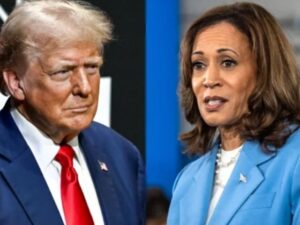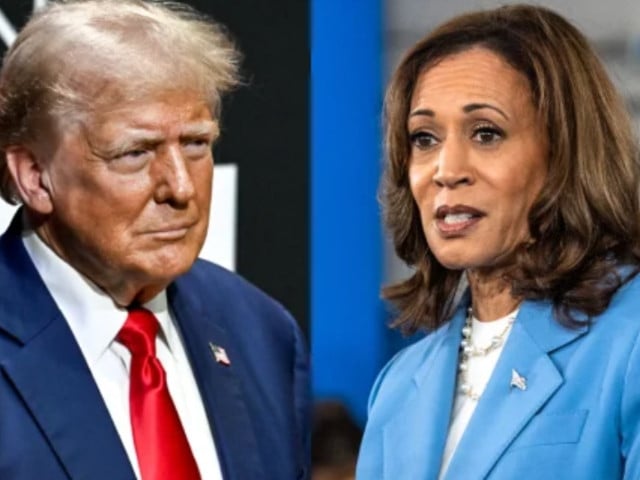The race for the White House between Vice President Kamala Harris and former President Donald Trump remains a closely contested battle as both candidates inch toward the November 5 election.

With Joe Biden unexpectedly dropping out of the race in July and endorsing Harris, the election has evolved into a historic showdown that could either result in Trump regaining the presidency or Harris becoming the first woman president in US history.
Polling data shows that Harris has maintained a slight lead over Trump on the national stage.
A recent Reuters/Ipsos poll conducted after the September 10 debate in Pennsylvania revealed that 53% of respondents believed Harris won the debate, compared to 24% who felt Trump emerged victorious.
In terms of voting preferences, Harris leads Trump by five percentage points in this poll, with 47% of respondents backing her and 42% supporting Trump.
This is a slight increase from a previous poll in August that had Harris ahead by four points (45% to 41%).
A YouGov poll produced similar results, showing that 55% of debate viewers felt Harris performed better, compared to 25% for Trump.
However, the poll did not show a shift in overall voter sentiment, with Harris still leading Trump 46% to 45%, the same margin as before the debate.
The Morning Consult poll, which surveyed 3,300 likely voters, showed Harris with a more comfortable lead at 50% to Trump’s 45%.
While Trump saw a minor one-point decline from 46% before the debate, Harris’s performance in the debate did not significantly change voter intentions.
Despite Harris’s debate success, polling experts caution that many Americans have already made up their minds about who they are supporting.
The data suggests that while the debate may have reinforced opinions, it is unlikely to sway a significant number of undecided voters.
National polling averages and Harris narrow polling lead
Harris has consistently held a narrow lead over Trump in national polling averages since she entered the race in July. Biden, who trailed Trump by several points in polls before withdrawing, endorsed Harris, leading to a tightening of the race.
Polling analysis website 538, which aggregates data from multiple polling sources, shows Harris holding onto a small but steady lead over Trump, with national averages suggesting the race is within a couple of percentage points.
The US election, however, is not determined by national popular vote but by the Electoral College, where each state is awarded a set number of electoral votes based on its population.
A candidate needs at least 270 out of 538 total electoral votes to win the presidency, and recent polls indicate that the contest is particularly close in key battleground states.
Tight battleground race states
The election’s outcome will likely hinge on a few key battleground states, where polls show a razor-thin margin between Harris and Trump.
States such as Pennsylvania, Michigan, and Wisconsin, which played pivotal roles in Trump’s 2016 victory, are once again expected to be decisive. Biden won back these states in 2020, and Harris will need to do the same if she is to secure the presidency.
Polling data from battleground states is more limited than national polling, making it difficult to predict a clear leader.
However, the margin between Harris and Trump in these states is often less than one percentage point, with Pennsylvania standing out as a critical battleground.
With the highest number of electoral votes among the contested states, Pennsylvania could make or break the candidates’ chances of reaching the 270 electoral votes needed for victory.
Challenges of predicting electoral outcome
Despite Harris’s current edge in the polls, analysts warn that national polling may not fully capture voter sentiment, especially in battleground states.
Polls underestimated Trump’s support in both the 2016 and 2020 elections, and polling companies are making adjustments to better account for voter turnout and preferences.
Still, the difficulty of predicting voter behavior—especially when the race is so close—means that the outcome remains uncertain.
While Harris may have emerged victorious in the eyes of debate viewers, and currently leads in polls, her ability to secure a definitive win over Trump will depend on how the race unfolds in the coming weeks, particularly in key battleground states.
The contest remains highly competitive, with the outcome likely determined by a small number of swing voters in a handful of critical states.



